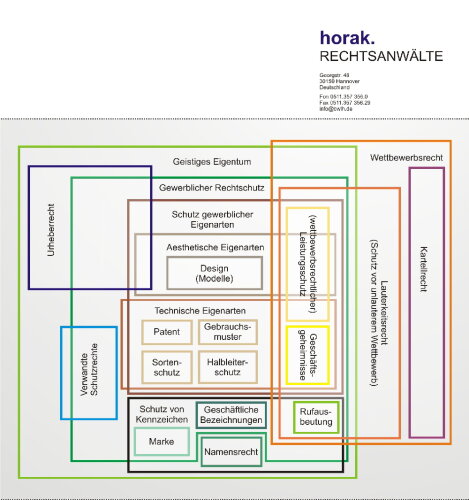Best Probate Lawyers in Germany
Share your needs with us, get contacted by law firms.
Free. Takes 2 min.
Or refine your search by selecting a city:
List of the best lawyers in Germany
About Probate Law in Germany
Probate law in Germany involves the process of administering the estate of a deceased person. It primarily focuses on the distribution of the deceased person's assets and settling any debts. German probate law outlines the procedures that must be followed in order to ensure the rightful inheritance process. This process is typically managed through the local probate court, known as the “Nachlassgericht.” German probate law is distinct from that of other countries, placing a strong emphasis on the legal frameworks outlined in the Bürgerliches Gesetzbuch (BGB), or the German Civil Code.
Why You May Need a Lawyer
There are several situations where individuals might find themselves in need of legal assistance in the field of probate in Germany:
Inheritance Disputes: Family disagreements regarding the distribution of assets can necessitate legal intervention to ensure fair and lawful settlement.
Foreign Assets or Beneficiaries: When an estate includes assets abroad or involves beneficiaries residing outside of Germany, the legal processes can become more complex.
Complicated Estates: Estates with a large number of assets, debts, or involved parties may require professional help to effectively manage the legal intricacies involved.
Will Contests: Disputes over the validity of a will or its contents are common reasons to consult with a legal professional.
Legal Documentation: Completing and filing the necessary legal documents can be complicated and requires meticulous attention to detail.
Local Laws Overview
Probate law in Germany is primarily governed by the Bürgerliches Gesetzbuch (BGB) - the German Civil Code. Some key aspects of local laws that are particularly relevant include:
Intestate Succession: If a person dies without a will, intestate succession laws determine heirs based primarily on blood relations. The inheritance share depends on the degree of relationship.
Testamentary Freedom: While Germans have significant freedom in drafting wills, there are compulsory portions (Pflichtteil) that must be reserved for close relatives, which can limit the discretion of the deceased.
Inheritance Tax: Germany imposes an inheritance tax (Erbschaftsteuer), which varies based on the value of the estate and the heir's relationship to the deceased.
Probate Process: The probate court ensures the legal transfer of the estate to the heirs. This process can include opening the will, adjudicating disputes, and a potential challenge period.
Frequently Asked Questions
What is the role of the Nachlassgericht in probate?
The Nachlassgericht, or probate court, administers the estate distribution of a deceased person, validating wills, supervising the lawful transfer of the estate, and resolving disputes.
Do all estates go through probate in Germany?
No, not all estates require formal probate. However, if there are disputes or complexities, probate is typically necessary to ensure proper settlements.
How long does the probate process take in Germany?
The probate process can vary significantly depending on the complexity of the estate and any legal contests, but it commonly takes several months to a year.
Who is entitled to a compulsory portion of the inheritance?
Close relatives, including spouses, children, and sometimes parents, may be entitled to a compulsory portion of the inheritance, even if they are excluded from the will.
How can a foreign will be validated in Germany?
A foreign will can be recognized in Germany if it complies with certain international standards. Legal advice is often necessary to ensure its validity under German law.
Is it possible to contest a will in Germany?
Yes, contesting a will is possible on several grounds, including lack of testamentary capacity, undue influence, or non-compliance with legal formalities.
What taxes might heirs be responsible for?
Heirs may be required to pay inheritance tax, which is based on the value of the estate and the relationship between the deceased and the heir.
Can debts be inherited along with assets?
Yes, debts can be inherited. The heir may accept the estate with its debts or declare a disclaimer to avoid the liabilities.
What is the European Certificate of Succession?
This certificate aids in the administration of cross-border inheritances within the EU, providing proof of rights as heirs or administrators across member states.
How do I challenge an inheritance decision?
Challenging a decision involves submitting a formal dispute through the Nachlassgericht. Legal assistance is recommended to navigate the process effectively.
Additional Resources
For additional information or assistance, consider the following resources:
- German Bar Association (Deutscher Anwaltverein): Offers guidance and referrals for specialist probate lawyers.
- Federal Chamber of Notaries (Bundesnotarkammer): Provides resources on notarial processes related to probate.
- Local Probate Courts (Nachlassgerichte): Offer information and assistance regarding procedural inquiries at the local level.
- German Embassy or Consulate: Can provide general guidance for foreign nationals dealing with German probate issues.
Next Steps
If you require legal assistance for probate issues, consider the following steps:
Research: Begin researching probate lawyers with experience in German law, especially if cross-border issues are involved.
Consultations: Schedule consultations with potential lawyers to discuss your specific situation. Prepare any relevant documents or questions in advance.
Understand Fees: Ensure you clearly understand the fee structure and what services will be provided before entering into an agreement.
Documentation: Gather all necessary legal documents, such as death certificates, wills, and property lists, for your lawyer's review.
Follow Legal Advice: Adhere to the legal advice and procedures recommended by your lawyer to achieve a favorable and lawful outcome in the probate process.
Lawzana helps you find the best lawyers and law firms in Germany through a curated and pre-screened list of qualified legal professionals. Our platform offers rankings and detailed profiles of attorneys and law firms, allowing you to compare based on practice areas, including Probate, experience, and client feedback.
Each profile includes a description of the firm's areas of practice, client reviews, team members and partners, year of establishment, spoken languages, office locations, contact information, social media presence, and any published articles or resources. Most firms on our platform speak English and are experienced in both local and international legal matters.
Get a quote from top-rated law firms in Germany — quickly, securely, and without unnecessary hassle.
Disclaimer:
The information provided on this page is for general informational purposes only and does not constitute legal advice. While we strive to ensure the accuracy and relevance of the content, legal information may change over time, and interpretations of the law can vary. You should always consult with a qualified legal professional for advice specific to your situation.
We disclaim all liability for actions taken or not taken based on the content of this page. If you believe any information is incorrect or outdated, please contact us, and we will review and update it where appropriate.
Browse probate law firms by city in Germany
Refine your search by selecting a city.














